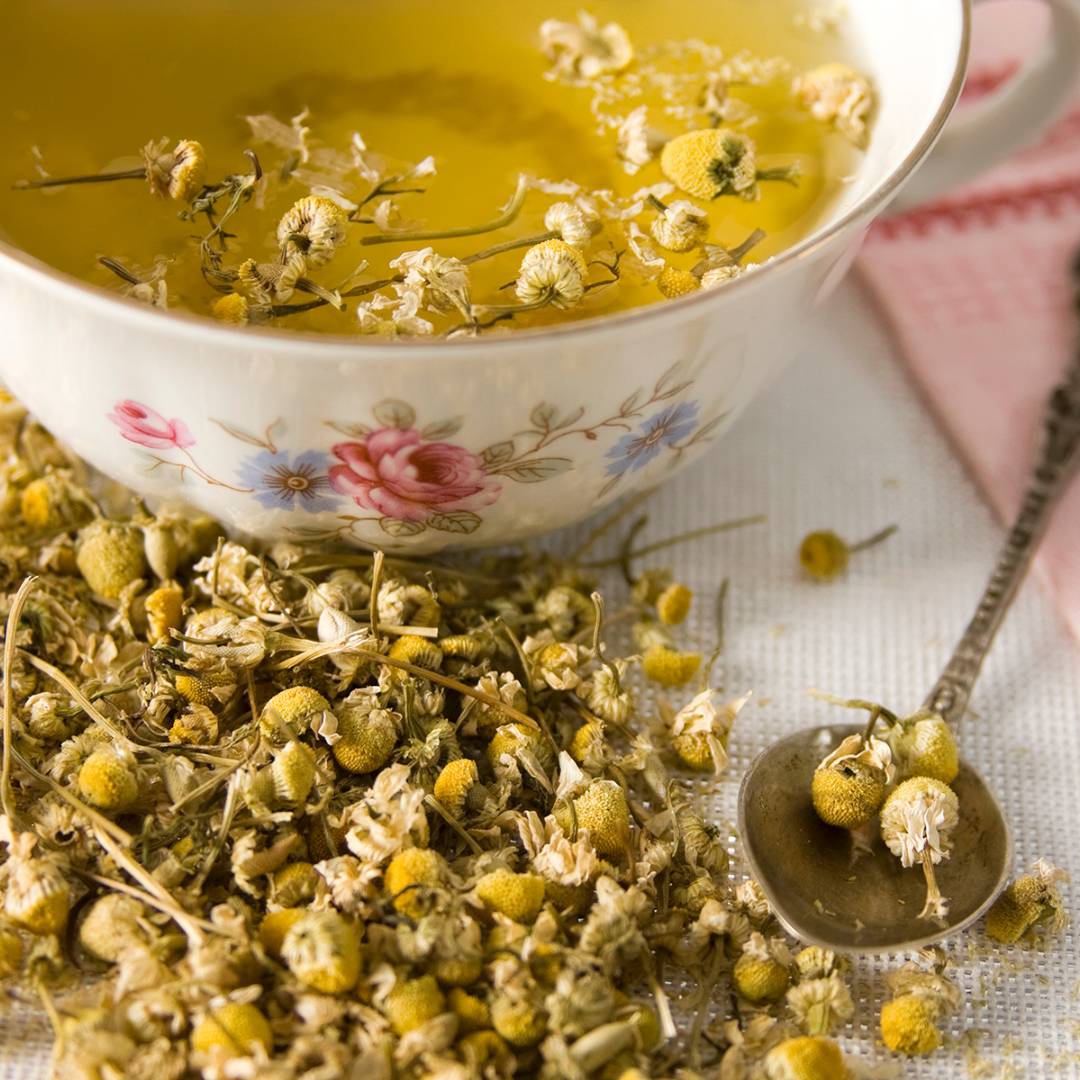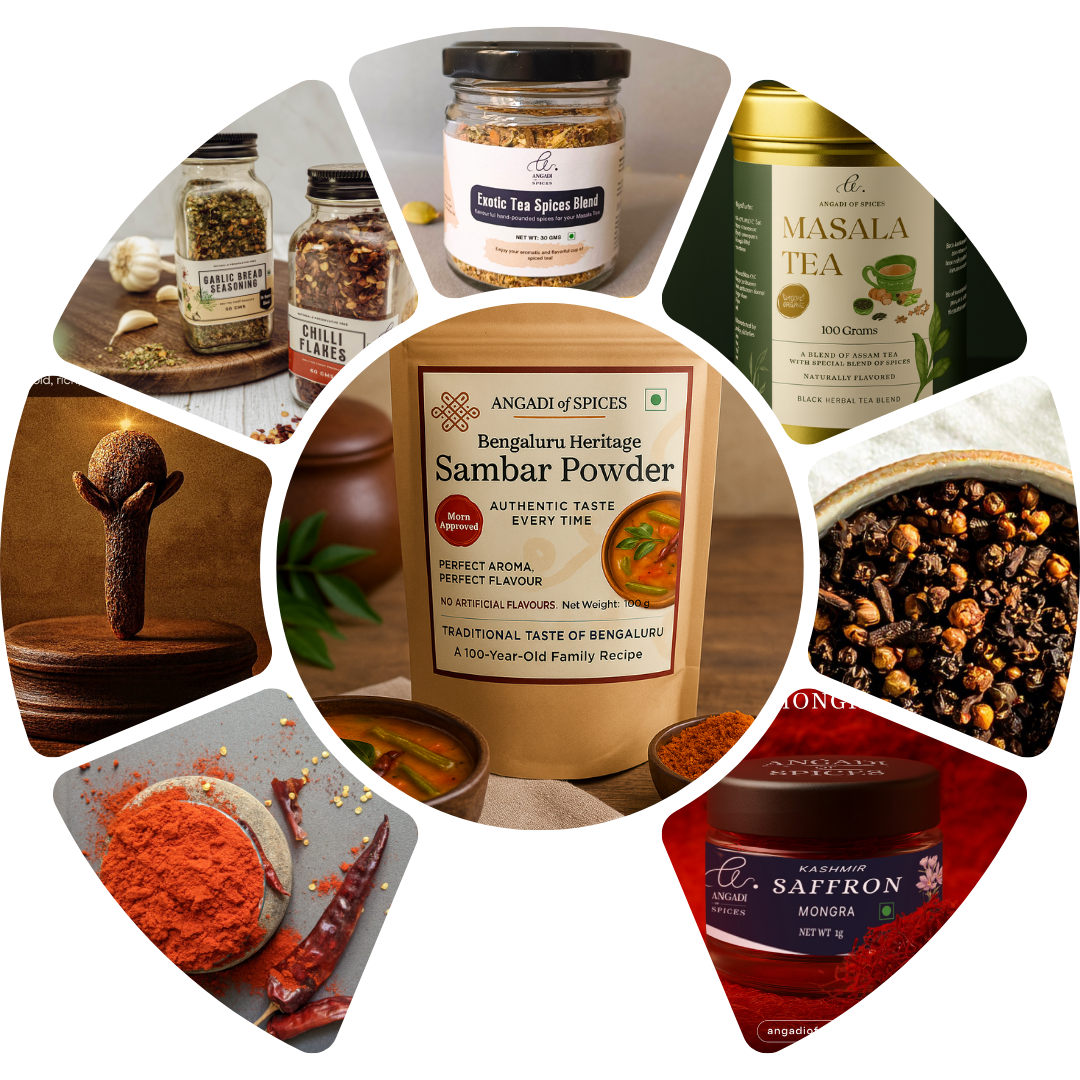Chamomile Tea Benefits, Flavour, and Brewing Guide: Everything You Need to Know
Introduction to Chamomile Tea
Chamomile tea, a timeless herbal infusion, is crafted from the dried flowers of the chamomile plant. Renowned for its gentle, soothing properties, chamomile tea has been a staple in traditional medicine for centuries. The plant, scientifically known as Matricaria chamomilla or Chamaemelum nobile, is native to Europe and Western Asia, but its popularity has spread worldwide due to its calming effects and mild, pleasant flavour.

Health Benefits
Promotes Relaxation and Sleep: Chamomile tea is widely celebrated for its calming effects. It contains apigenin, an antioxidant that binds to certain receptors in the brain, promoting relaxation and helping to alleviate insomnia. A warm cup of chamomile tea before bed is a natural way to encourage restful sleep.
Supports Digestive Health: Chamomile tea can aid in digestion by relaxing the muscles of the intestines, which helps to reduce symptoms of indigestion, bloating, and gas. It’s also known to soothe the stomach and can be beneficial for those experiencing nausea or acid reflux.
Anti-Inflammatory Properties: Chamomile contains anti-inflammatory compounds that may help reduce inflammation throughout the body. This can be particularly beneficial for individuals suffering from inflammatory conditions such as arthritis.
Boosts Immune System: Regular consumption of chamomile tea may strengthen the immune system. The tea’s antibacterial properties help protect against common infections and illnesses, making it a great addition to your daily routine during cold and flu season.
Skin Health: Chamomile tea is not only beneficial when consumed but also when applied topically. It can help soothe irritated skin, reduce redness, and accelerate the healing of minor wounds or burns due to its anti-inflammatory and antiseptic properties.
May Help Manage Blood Sugar Levels: Some studies suggest that chamomile tea may help in managing blood sugar levels, particularly for those with diabetes. While not a replacement for medication, it can be a supportive addition to a diabetes management plan.
Culinary Advantages
Delicate Flavour: Chamomile tea has a mild, slightly sweet, and floral flavour that is both comforting and versatile. It can be enjoyed on its own or blended with other herbs and spices for a more complex taste.
Aromatic Experience: The gentle aroma of chamomile is as much a part of the tea-drinking experience as its flavour. Its fragrance is soothing, making it an excellent choice for unwinding after a long day.
Versatility: Chamomile tea can be used as a base for various tea blends. It pairs well with herbs like mint, lavender, and lemon balm, or with fruits like apple and pear, making it a versatile ingredient in both beverages and culinary creations.
Additional Advantages
Cultural Significance: Chamomile has been used in traditional medicine across various cultures for its healing properties. In ancient Egypt, it was revered for its ability to treat fevers, while in Europe, it has been used for centuries as a remedy for digestive issues and sleep disorders.
Caffeine-Free: Chamomile tea is naturally caffeine-free, making it an ideal choice for those looking to reduce their caffeine intake while still enjoying a warm, comforting drink.
Flavour Profile
Chamomile tea is known for its gentle, floral flavour with hints of apple and honey. The light golden colour and soothing aroma make it a perfect choice for a relaxing evening tea. Its mild taste can be enjoyed plain or enhanced with a touch of honey or a slice of lemon.
Brewing Instructions

Ingredients:
- 1 tablespoon dried chamomile flowers (or 1 chamomile tea bag)
- 1-2 cups water
- Optional: honey, lemon, or a cinnamon stick
Instructions:
- Boil Water: Heat 1-2 cups of water until it reaches a rolling boil.
- Add Chamomile Flowers: Place the dried chamomile flowers or tea bag into a teapot or cup.
- Pour Water Over Chamomile: Carefully pour the boiling water over the chamomile flowers or tea bag to ensure full extraction of the beneficial compounds.
- Steep: Allow the tea to steep for about 5 minutes. Adjust the steeping time depending on your preferred strength.
- Strain: If using loose chamomile flowers, strain the tea into a cup using a fine mesh strainer. Remove the tea bag if that’s what you used.
- Add Optional Ingredients: Sweeten the tea with honey, add a slice of lemon, or infuse with a cinnamon stick for added flavour.
- Serve: Enjoy your chamomile tea hot as a calming beverage before bed or during a peaceful moment in your day.
Tips:
- Adjust Strength: Experiment with the amount of chamomile used or the steeping time to find your perfect brew.
- Chilled Option: Chamomile tea can also be served chilled, making it a refreshing option for warm weather.
Varieties and Blends
Chamomile tea can be enjoyed alone or blended with other herbs for added benefits and flavour. Popular blends include chamomile with mint for a cooling effect, or with lavender for an extra calming experience. Adding spices like cinnamon or ginger can create a warming and comforting brew, ideal for cooler months.
Cultural Significance
Chamomile has a long history of use in traditional medicine and cultural practices. In Europe, it has been used as a remedy for a variety of ailments, from digestive issues to skin conditions. In ancient Greece, Rome, and Egypt, chamomile was valued for its healing properties and was often dedicated to the sun gods for its perceived power to heal.
Potential Side Effects
While chamomile tea is generally safe for most people, consider the following:
- Allergic Reactions: Those allergic to plants in the daisy family (such as ragweed, marigolds, or chrysanthemums) may experience allergic reactions to chamomile. Discontinue use if any adverse reactions occur.
- Pregnancy and Breastfeeding: Pregnant or breastfeeding women should consult their healthcare provider before consuming chamomile tea, as its effects during pregnancy are not fully understood.
- Interactions with Medications: Chamomile tea may interact with certain medications, including blood thinners. It’s advisable to consult with a healthcare provider if you are on medication.
Storage Tips
To preserve the quality and flavour of chamomile tea, store dried chamomile flowers or tea bags in an airtight container in a cool, dry place, away from direct sunlight. Proper storage will help maintain the tea’s soothing properties and ensure it remains fresh.
Chamomile tea is not only a calming and aromatic beverage but also offers a wealth of health benefits. From promoting relaxation to supporting digestive health, this herbal tea is a comforting addition to any daily routine. Whether you prefer it hot before bedtime or as a chilled refreshment during the day, chamomile tea is a delightful way to unwind and support your overall well-being. Experience the tranquillity of chamomile tea and make it a cherished part of your wellness journey!




